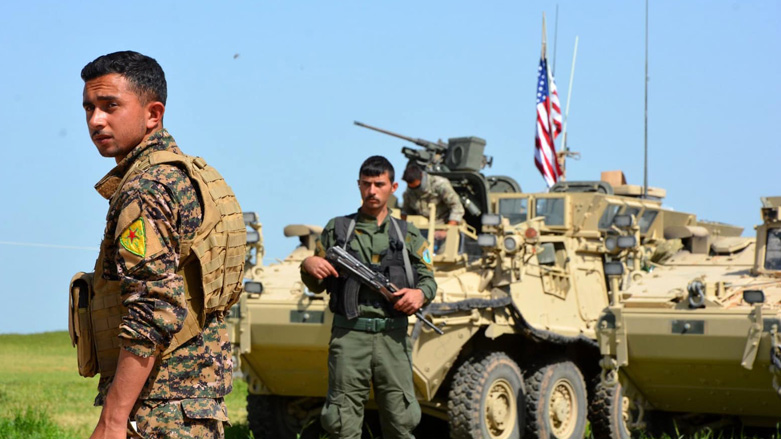US will fight IS in Syria until they are “no more,” but no mention of Iraq

ERBIL, Kurdistan Region (Kurdistan 24) – The US will keep fighting the Islamic State (IS) in Syria “as long as they want to fight,” according to the top American defense official, although he made no mention of Iraq.
Defense Secretary Jim Mattis on Monday described a longer-term role for the US in Syria to prevent the return of “ISIS 2.0” despite their overwhelming territorial losses.
“The enemy hasn’t declared that they’re done with the area yet, so we’ll keep fighting as long as they want to fight,” Mattis said, when discussing the future of US operations in Syria.
Last week, the US-backed Syrian Kurdish-Arab alliance forces liberated a strategic stronghold from the jihadist group, which has recently also lost territory to regime forces near the border with Iraq.
As Mattis stressed the importance of longer-term peace efforts, which include addressing Syria’s seven-year old civil war, he did not mention Iraq’s current conflicts.
The Defense Secretary, according to Reuters, suggested US forces would help set the conditions for a diplomatic solution in Syria.
“We’re not just going to walk away right now before the Geneva process has traction,” he asserted.
However, right across the border, the US has allowed Iranian influence to spread throughout Iraq, notably against its other Kurdish allies, thereby, putting at risk the progress that has been made against IS there.
In the aftermath of the Sep. 25 referendum on independence for the Kurdistan Region, the US has favored Baghdad in its dispute with Erbil, although in recent days, the US has shifted toward a more neutral position.
Washington’s benign attitude toward Iran’s strong influence in Iraq was most manifest on Oct 16. Then Iraqi forces, including Iranian-backed Shia militas, in an operation orchestrated by Qassem Soleimani, head of the Quds Force of Iran’s Islamic Revolutionary Guard Corps (IRGC), attacked Kirkuk and other disputed territories. At the time, US spokesmen claimed to have no knowledge of Soleimani’s role or that of the Shia militias.
US efforts to stabilize Syria may prove futile, as Iran continues to establish a channel through Iraq to bring its fighters into the war-torn country and support the regime of Bashar al-Assad.
American lawmakers are increasingly pressing the administration over the use by Iraq’s Shia militias of US military equipment, including M-1 Abrams tanks, against Peshmerga forces, and the role of the IRGC—which the US has designated a terrorist organization—in supporting those militias.
Hashd al-Shaabi, also known as the Popular Mobilization Forces (PMF), leaders have previously brushed off calls by the US Secretary of State, Rex Tillerson, and Iraqi Prime Minister Haider al-Abadi to lay down their weapons after the fight against IS ends, fall into the ranks of the army, and allow for the political process to proceed without their interference.
“PMF leaders have said, 'It is not up to Abadi to disarm us.' They listen to [Ayatollah] Sistani or Iran,” warned an Iraqi parliamentary while speaking to Kurdistan 24.
These same Shia militias, whether Iraqi, Lebanese or Iranian, are also active in Syria, but Washington has yet to explain how it reconciles this with its approach to the Baghdad-Erbil conflict.
Editing by Laurie Mylroie
